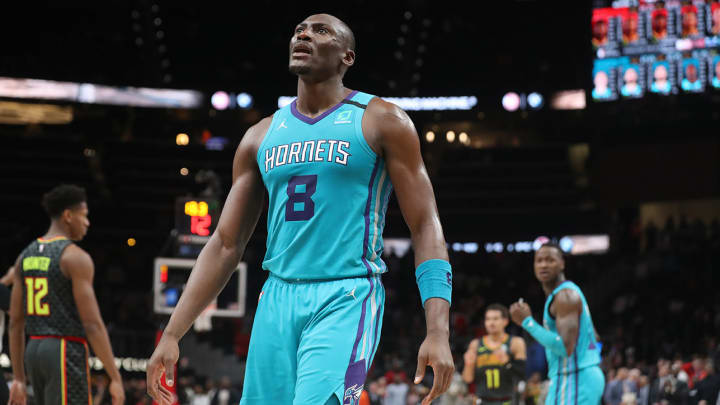How One Coach Made the Difference in Bismack Biyombo's Basketball Career

Welcome to “Change Agents,” where the biggest names in sports have a chance to spotlight someone in their life who has been personally meaningful to them—someone who they believe is the best example of an individual fighting for change and one who has inspired the athlete to do better and be better.
It took two years to convince my parents to approve of my plans to become a professional athlete. Although they believed in me, they both asked: “What if this doesn’t work?” If I was unsuccessful, I told them, then I'd come home, finish school and get a job. And you’ll never hear me talk about basketball again.
This was the deal I made with my parents before I left my home and my family in the Democratic Republic of Congo at age 16 to pursue a basketball career. For me, there was no going back. At first, the plan was to go to Qatar. And on the way there, I had to stop in Yemen. When the visa process to get to Qatar took longer than expected, I started to train with a local team there in Yemen, and they really liked me. The coach admired me and he said that if I didn't want to go to Qatar, I could join the team. So, as the process continued to take longer, I decided to stay and start my career there.
And that’s where I met Mario Palamo, a man who has had a major impact on my life and someone that I admire and love to this day. The story of our first encounter is actually a funny one. It was in the middle of a game. I remember I had this wild block. It was like hand-to-hand with the guy—it was a straight block—but he fell backward. The referee called a foul on me. And as he was shooting free throws, Mario was right behind me near the opposing team’s bench. He was actually coaching the game. He looked at me and said, “You know, it was not a foul. And by the way, how old are you?”
I replied and told him I was 16 years old. “What are you doing in Yemen?” he asked. And I said, “Exactly what I'm doing now, playing basketball.” Then he told me to make sure to find him after the game so we could talk. “If you don't find me, I'll find you,” Mario told me.
After the game—my team lost by a lot, but I had a great game—we started talking. Mario said, “I think I can help you. I don't think Yemen is a place for you. You're going to be a wasted talent if we leave you in this region to play basketball.”
So he offered me two options. One of them was to go back to Africa, because at the time, Angola had the best basketball structure in the country for developing young talent. And then the second option was to go to Spain and play there with Fuenlabrada-Getafe Madrid. So I took the second opportunity, and that's how I started working with Mario and the people who he knew in the world of basketball.
Mario is a very, very well-respected coach, especially in Africa, because that’s where he started coaching before he went to the Middle East. But he’s also a special person that I’ve learned so much from, even outside of basketball. He's just unique and genuine, he loves the game and he loves helping young kids, especially. If there is anything that he can do to help you in any situation, he will do it. That's just Mario.
When he had the intention of helping me, not once did he ever ask me for anything. Not once. He was such a big part of my life and helped me in shaping my career. That's just the way he is. That selflessness inspired me off the court and gave me a guiding principle to use as I started my foundation and began to help a lot people, especially kids. That is: You expect nothing from them because you don't know where life is going to take you and who those kids are going to help in the future.
With the Bismack Biyombo Foundation, we started giving a lot of scholarships to kids to go to college. And back home, we do a lot of work as far as refurbishing hospitals and giving donations of medical equipment. Although I put up a lot of my own money, I never expect anything in return. That’s something instilled in me from Mario, and my parents, too. I just want to see the kids happy and see them to go from unfortunate situations to better situations. I never want to see another kid go through the struggle I went through.
I don't believe in coincidence. I think everything happens when it is supposed to happen. My parents always told me that, so it’s always stuck with me. And I also believe in the journey. I think sometimes you just have to dance with the universe and see what the universe is giving you. Everybody that I've met along the way has brought something to me or taught me something.
For Mario, it was to help me and guide me toward my dream. I don't think Mario felt an obligation to do anything—he does it out of the desire to help people. That’s just part of his character. He has helped a lot of kids. I don't think I'm the first one. I just got to fulfill my dream and make it to the NBA.
